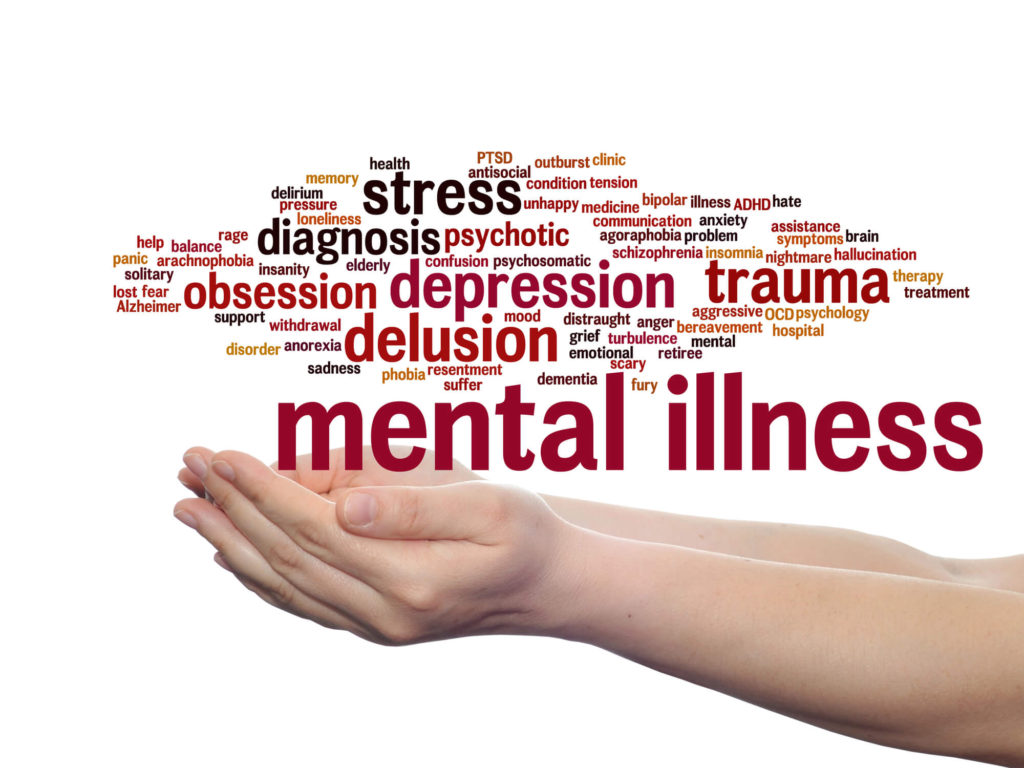Comprehensive Inpatient Mental Health And Wellness Solutions for Effective Treatment
Inpatient psychological health and wellness solutions stand for a critical element of the medical care system, providing a extensive and organized setting for individuals experiencing severe emotional distress. These solutions use a multidisciplinary approach, integrating different evidence-based therapies to deal with the intricate requirements of individuals. However, the performance of such extensive treatment extends past prompt stabilization; it additionally incorporates the shift to outpatient support, an important stage commonly neglected. Discovering the nuances of this continuum exposes substantial implications for both specific recuperation and wider psychological health and wellness outcomes. What aspects genuinely affect this change, and exactly how can we improve its performance?
Comprehending Inpatient Mental Health And Wellness Services
Inpatient psychological health services provide essential assistance for individuals experiencing serious psychological distress that can not be taken care of properly in an outpatient setup. These solutions are designed to use an intensive degree of treatment in an organized environment, commonly within a hospital or specialized center. Clients admitted to inpatient programs generally show severe signs, such as self-destructive ideation, severe clinical depression, or psychosis, requiring day-and-night tracking and intervention.
The admission process generally entails a comprehensive analysis by psychological wellness professionals, who examine the person's mindset, history, and prompt needs. As soon as admitted, individuals participate in a selection of therapeutic methods customized to their details needs, consisting of medication monitoring, private treatment, and group sessions. This all natural approach intends to support the person's problem, promote security, and foster coping skills.
Inpatient mental health and wellness services not just address instant health and wellness concerns however likewise function as a bridge to ongoing care. By giving a regulated atmosphere, these services assist in the advancement of treatment plans that can be continued in outpatient settings, thus making sure a continuum of treatment and improving long-term outcomes for individuals with intricate psychological health and wellness demands.
Key Parts of Effective Therapy
Reliable therapy in inpatient mental wellness solutions consists of several vital elements that cultivate healing and stablizing. Primarily, a detailed evaluation is vital to recognize the person's details demands and obstacles. This analysis educates the growth of a customized therapy strategy, which works as a roadmap for intervention.
One more essential component is the multidisciplinary team method. Partnership amongst psychiatrists, psychologists, nurses, and social workers makes sure that different perspectives contribute to the patient's treatment, enhancing the performance of therapy. Evidence-based restorative modalities, such as cognitive-behavioral treatment (CBT) and dialectical behavior modification (DBT), are likewise essential, providing organized strategies that address maladaptive thought patterns and behavior issues.

Finally, a concentrate on aftercare planning is vital to make certain a seamless shift to outpatient services, lessening the risk of relapse and advertising lasting wellness. These cumulative elements produce an efficient therapy structure within inpatient psychological wellness services.
Benefits of Comprehensive Treatment

Thorough treatment in inpatient psychological wellness solutions uses various benefits that substantially enhance patient results. One of the key advantages is the holistic method to treatment, addressing not only the psychological signs and symptoms yet likewise the physical, social, and emotional demands of people. This thorough analysis enables customized treatments that promote total well-being.
An additional benefit is the assimilation of multidisciplinary groups, which cultivates cooperation among health care professionals. This collaborative environment ensures that people get coordinated care, reducing the risk of fragmented therapy and improving interaction among caretakers. In addition, detailed treatment assists in connection of services, permitting seamless transitions from inpatient to outpatient setups, which is essential for long-term recuperation.

Lastly, the structured setting of thorough inpatient care gives a secure area for individuals to involve in therapeutic tasks, helping them create coping methods and strength. Collectively, these advantages add to extra effective treatment and enhanced quality of life for individuals experiencing psychological health dilemmas.
Evidence-Based Restorative Methods
In the world of psychological health and wellness treatment, evidence-based therapeutic approaches play an essential duty in making sure that individuals get efficient and scientifically supported treatments. These approaches incorporate the very best readily available study with medical competence and person worths, promoting a customized therapy experience that deals with individual demands.
Cognitive Behavioral Therapy (CBT) is one of the most widely acknowledged evidence-based techniques, concentrating on determining and transforming adverse thought patterns and behaviors. This organized approach has actually demonstrated effectiveness in dealing with conditions such as anxiety, stress and anxiety, and PTSD. Similarly, Dialectical Behavior Modification (DBT) is specifically reliable for individuals with borderline individuality condition, stressing the development of emotional regulation and social effectiveness skills.
Furthermore, drug monitoring is usually an essential component of evidence-based treatment, as psychotropic medications can alleviate symptoms and enhance general performance. Joint care models, which include multidisciplinary teams, additionally enhance the efficiency of inpatient solutions by guaranteeing detailed analyses and constant tracking.
Ultimately, the combination of evidence-based healing approaches not just promotes positive professional end results yet additionally empowers patients, cultivating a sense of firm and resilience in their psychological health trips.
Transitioning to Outpatient Assistance
The change from inpatient mental health solutions to outpatient support notes an essential stage in a patient's recuperation journey. This inpatient mental health services period needs mindful preparation and sychronisation to make sure continuity of care and to alleviate the dangers of relapse or situation. Reliable discharge planning should commence early in the inpatient stay, entailing a multidisciplinary group that consists of psychiatrists, psycho therapists, registered nurses, and social employees.
Secret components of a successful shift include the advancement of an extensive aftercare plan tailored to the person's certain requirements. This strategy ought to lay out follow-up consultations, medicine monitoring, and healing interventions, as well as determine community sources and support system that can facilitate ongoing healing.
Additionally, patient and family education is important during this stage. Comprehending the signs of prospective troubles and the value of sticking to therapy can equip patients and their support group.
Routine follow-up and reassessment of the outpatient plan are essential to address evolving difficulties. By fostering a joint relationship in between outpatient and inpatient providers, the probability of sustained recovery boosts, ultimately improving the patient's lifestyle and lowering the threat of readmission.

Final Thought
In recap, extensive inpatient psychological health and wellness solutions provide a vital framework for resolving extreme mental distress through a multidisciplinary strategy. By incorporating evidence-based treatments, fostering an organized atmosphere, and promoting family involvement, these services enhance therapy performance. The emphasis on stability and the development of dealing skills not just aids in prompt recuperation however also facilitates a smoother change to outpatient treatment. Ultimately, such comprehensive treatment is important for long-lasting psychological health and wellness and wellness.
The admission procedure generally involves an extensive evaluation by psychological wellness experts, who evaluate the person's psychological state, history, and immediate requirements.Reliable therapy in inpatient mental health and wellness services comprises several crucial parts that foster recuperation and stablizing.Comprehensive treatment in inpatient mental health solutions supplies various advantages that substantially boost patient outcomes.The shift from inpatient psychological wellness services to outpatient support notes an essential phase in a patient's recovery trip.In summary, comprehensive inpatient mental health solutions provide a necessary framework for addressing serious mental distress through a multidisciplinary technique.